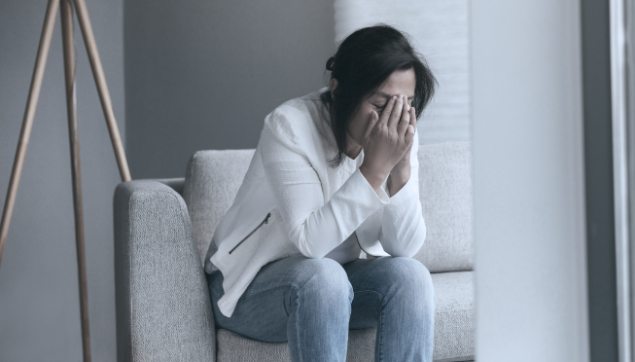How to cope with COVID-19 stress and depression

Published on 2nd November, 2020 at 12:18 pm
From news headlines to social media platforms and even our conversations, there’s an influx of COVID-19-related news. Although staying updated is important, consuming excessive amounts of negative news could increase the risk of mental health conditions such as depression and stress.
The ‘new normal’ comprises of being separated from your loved ones, a partial loss of freedom, and uncertainty about the future, so feeling anxious or stressed is understandable. However, if you experience these feelings for several days or weeks, it may be time to seek help. Early intervention from a professional could lower your risk of developing a serious condition.
Signs of COVID-19 stress and depression
According to research published in The Lancet medical journal, being in situations like these where you are isolated from others for long periods could result in mental health issues such as stress disorders and depression.
Stress and burnout
It’s predicted that we will never completely go back to what existed before. Estimates vary but the International Labour Organisation thinks that about 27% of jobs in high-income countries could be performed from home in the future.
If you’re working remotely or are consistently consuming COVID-19 updates, you should take precaution as these activities could result in chronic stress and work-from-home burnout. This may be due to the influx of negative news and not having clear boundaries between your personal and professional life while working from home.
Chronic stress puts a strain on your physical and mental health and, in severe cases, could increase your risk of certain illnesses such as hypertension (high blood pressure) and insomnia. Over time, chronic stress could result in burnout, which is mental and physical exhaustion caused by prolonged stress.
Common symptoms include:
• Extreme irritability
• Headaches
• Fatigue
• Digestive problems
• Sleep difficulties and restlessness
• Intense nervousness
• Feeling helpless
• Unexplained aches and pains
Depression
Depression is a mental-health disorder categorised by persistent feelings of sadness, along with a loss of interest in daily activities, which significantly affect your ability to function in daily life. This usually lasts for several days or weeks.
Common symptoms include:
• Changes in appetite or weight
• Pains, aches or cramps
• A decrease in energy, fatigue and feeling sluggish
• Difficulty concentrating and making decisions
• Difficulty sleeping (a change in your routine resulting in oversleeping or early rising)
• Loss of interest and enjoyment in activities or hobbies
• Consistent feelings of hopelessness, sadness or emptiness
• Thoughts of death or suicide
When to get help
You can try some self-help stress relievers to get your stress under control, suggests Mayo Clinic, such as:
• Trying meditation, yoga or deep breathing
• Getting regular physical activity
• Getting enough sleep
• Eating a healthy diet
• Managing your time
• Cutting back on obligations
According to Mayo Clinic, “If your stress management efforts aren’t helpful enough, see your doctor. If you’ve developed depression, you and your doctor can discuss treatment options.”
Along with your doctor and a mental-health expert, you can help yourself further by reaching out to:
• Family and friends to let them know how you are feeling. Ask them for support when you need it.
• Mental health support groups.
• Reputable online sources such as the Centers for Disease Control and Prevention and the World Health Organization for tips about managing your anxiety and stress.
Good to know
While you may currently be feeling anxious, it’s important to remind yourself that this situation is temporary. Healthcare workers and researchers are hard at work searching for a vaccine, so take comfort in doing things that provide you with structure, control and safety. These include following hygiene best practices, keeping a safe distance from others and staying connected with your loved ones remotely.
This article is published courtesy of CareWays.
Want to learn more?
We send out regular emails packed with useful advice, ideas and tips on everything from saving and investing to budgeting and tax. If you're a Sanlam Reality member and not receiving these emails, update your contact details now.
Update Now







